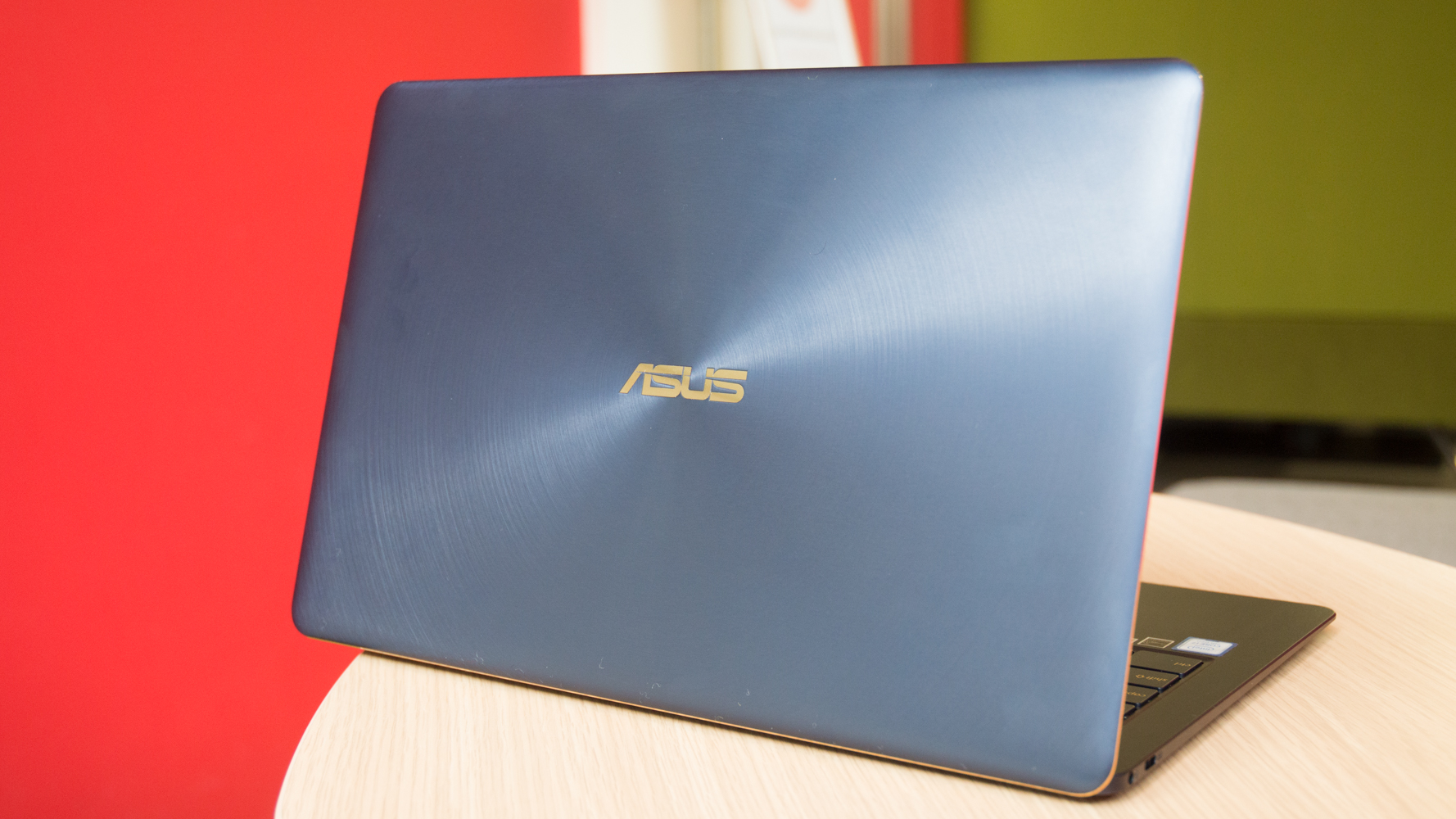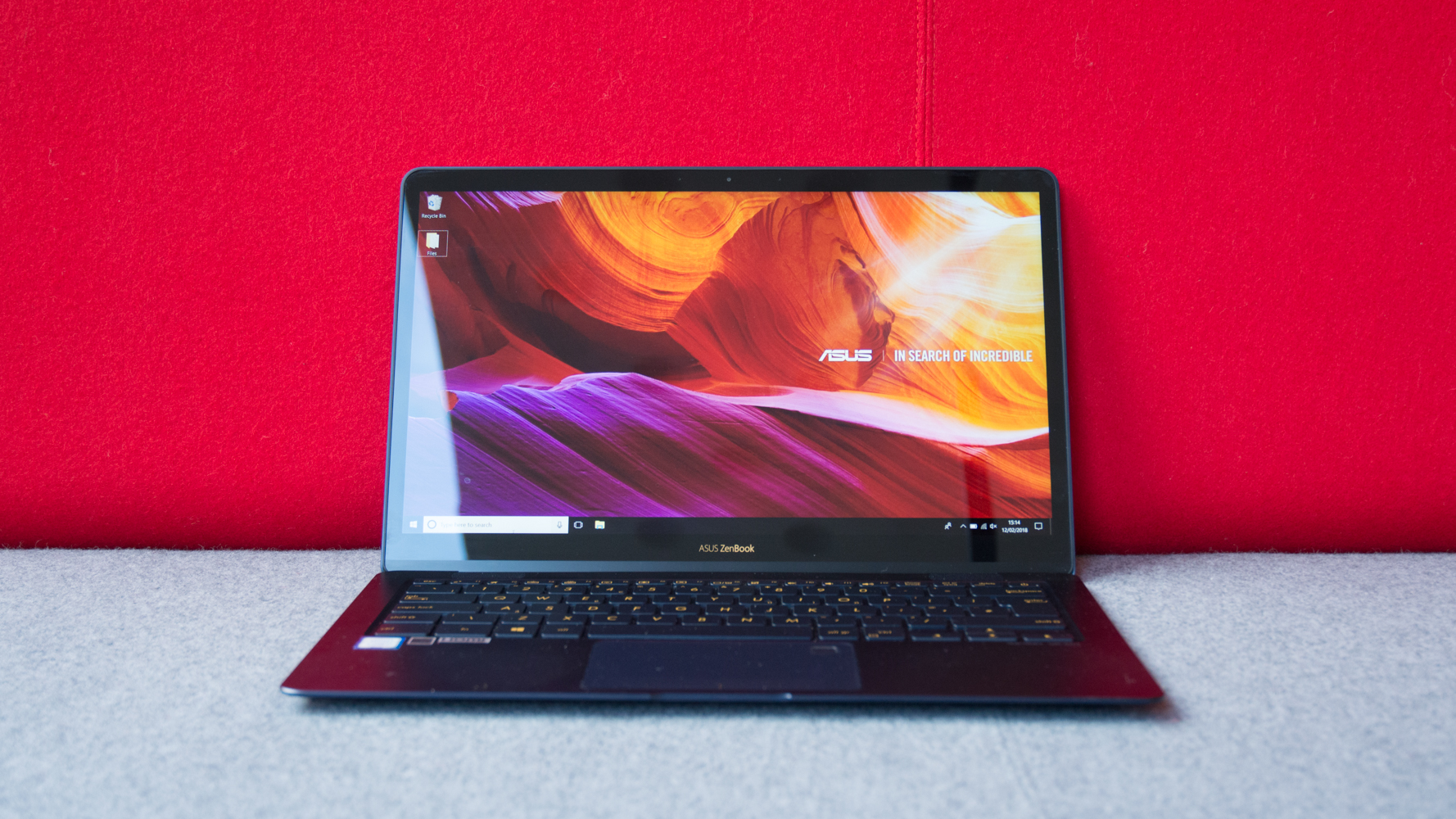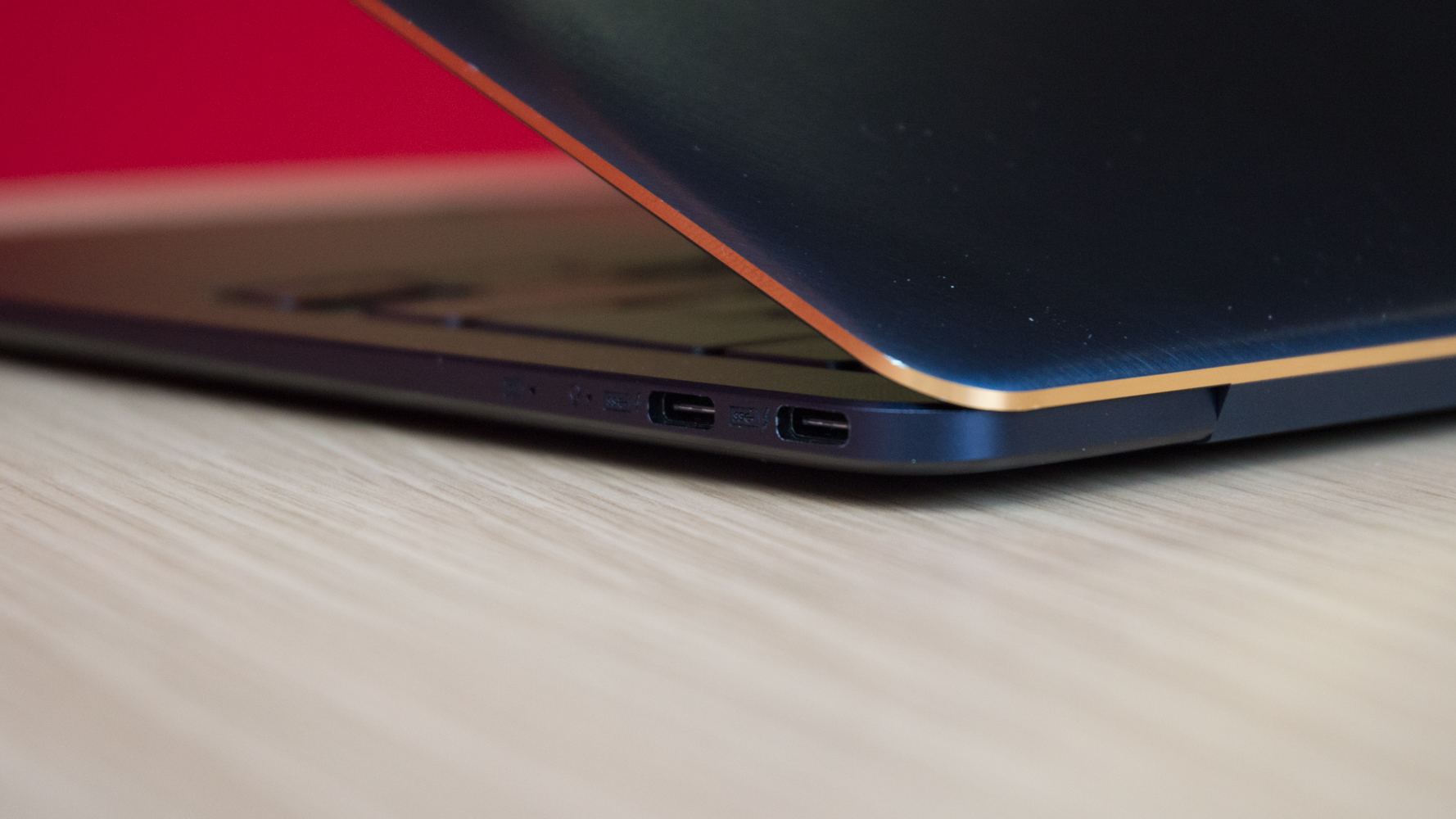Asus ZenBook 3 Deluxe review: Fast, stylish and far too expensive
This snazzy ultrabook is simply too pricey to recommend
Despite winning points for its speed, looks and portability, the Asus ZenBook 3 Deluxe isn’t good enough value compared to cheaper and more capable rivals.
-
+
Attractive design; Strong performance; Thin and light
-
-
Middling screen quality; Battery life is slightly disappointing; Very expensive

Taiwanese manufacturer Asus is one of the go-to brands when it comes to mid-range and budget laptops, with a good reputation for producing affordable devices that still offer a good balance of performance and looks. It hasn't quite managed to replicate that success with its high-end laptops, however.
Acer Aspire 5 review: Coffee Lake upgrade offers buckets of energy Best business laptops 2023: Top business notebooks from Acer, Asus, Dell, Apple and more Asus ZenBook Flip UX560UQ review
While there have been a couple of standouts - such as the unique and powerful AsusPro B9440U - most of its output has been firmly below the 'premium' category. This time around, Asus is hoping to impress with a follow-up to one of its comparatively rare top-end devices, the Asus ZenBook 3, which impressed with a stylish design and solid speeds.
The new ZenBook 3 Deluxe is aiming to take on devices like the Dell XPS 13 and the Lenovo Yoga 920, and is banking on a larger screen size and a few new features in order to do it - but does it have what it takes?
Asus ZenBook 3 Deluxe review: Design
While most manufacturers opt for an understated, business-like black or silver colour scheme, Asus has done the opposite, cladding the ZenBook 3 Deluxe in a rich, midnight-blue chassis with gold detailing.
It's the same design as the original ZenBook 3 - the only difference here is that it's spread over a larger footprint to accommodate the 14in screen. Having said that, it's a very attractive look indeed, and just as appealing here as it was on the original device.
Not only is this significantly more eye-catching than other, more common colour schemes, it also makes the device feel pleasingly extravagant without being as garish as a gold or rose-gold finish.
Acer Aspire 5 review: Coffee Lake upgrade offers buckets of energy Best business laptops 2023: Top business notebooks from Acer, Asus, Dell, Apple and more Asus ZenBook Flip UX560UQ review
It's a very attractive chassis, but unfortunately, the design isn't as premium in other aspects. The build quality is slightly plasticky, particularly around the keyboard surround, and the aluminium chassis doesn't feel as rigid or sturdy as we might like.

However, the tradeoff is that it's still nicely portable. It's a little thicker and heavier than the regular ZenBook 3 weighing 1.1kg and measuring just under 13mm thick but it's not a huge increase. It's not quite the lightest, thinnest laptop around, but it's one of the more lightweight 14in notebooks we've seen, and it's easily svelte enough to carry around all day without feeling weighed down.
Asus ZenBook 3 Deluxe review:Keyboard and trackpad
As is often the case with Asus' laptops, the keyboard isn't a particular highlight. Although feedback is reasonably crisp and precise, the travel depth isn't particularly satisfying, and the keys have a slightly bouncy feeling to them when typing. They are backlit at least, though, and the keys are large and well-spaced enough to prevent typos.
The trackpad is also good, with a smooth glass surface and multi-touch support. It's not as expansive as some of its rivals, but there's plenty of room to navigate without feeling overly constrained.
Asus ZenBook 3 Deluxe review:Display
At first glance, the display is excellent. Its screen bezels are just under 7.5mm and while they aren't quite as razor-thin as those on Dell's excellent InfinityEdge displays, it ensures the screen feels nice and expansive. It also allows Asus to squeeze a 14in display into a relatively petite frame and we never felt starved of screen space while using the ZenBook.

Another nice touch is that the 1080p screen is protected by Corning's Gorilla Glass 4 something you don't often see on laptops. This means it will be protected from drops and scratches, up to a point.
Sadly, the actual image quality isn't quite so rosy. Despite the manufacturer's claims that it covers 100% of the sRGB gamut, our tests only showed a coverage of 84%, which is disappointingly middling. We found blues and yellows to be oversaturated, while reds and greens tended to be undersaturated. The maximum brightness of 307cd/m2 is also only average and may not cope well under bright lighting conditions, especially as there's no anti-glare coating either.
Asus ZenBook 3 Deluxe review:Specs and performance
The ZenBook 3 Deluxe isn't exactly a slouch when it comes to performance; our review unit was packing a 7th-gen Core i7-7500U processor, one of Intel's more powerful laptop chips. That's paired with a meaty 16GB of RAM, which delivered a solid score of 50 in our performance benchmarks - for context, that's the same score as the Dell XPS 13, and only just behind the Lenovo ThinkPad X1 Carbon. While that's not quite as impressive as some of the scores being racked up by laptops with Intel's newest Coffee Lake processors, it's still up there with the cream of the ultrabook crop.
Battery life was less inspiring, however. We'd expect something in this class to be able to get through a full working day without having to charge back up, but after acheiving a disappointing 6hrs 16mins in our battery tests you'd be advised to keep the ZenBook's charger handy if you're leaving the office. Luckily, if you do run out you can use the ZenBook's fast-charging capabilities to give it a speedy top-up.
Asus ZenBook 3 Deluxe review:Ports and features
As with any ultra-thin notebook, the ZenBook 3 Deluxe has had to sacrifice most of its ports on the altar of slimness. Thankfully, Asus has upped the number of ports over the paltry single USB-C port seen on the original ZenBook 3 and now offers three USB-C ports. Two are ThunderBolt 3-enabled, allowing them to support video output and a faster data transfer rate in addition to power delivery, while one is merely a first-generation USB 3.1 port.

Biometric login functions are offered thanks to a fingerprint reader built into the touchpad. Login is fast and accurate, and the sensor encountered hardly any problems recognising our prints. It's not quite as fast and convenient as facial recognition, but it's a close second.
Asus ZenBook 3 Deluxe review:Verdict
The Asus ZenBook 3 Deluxe is a pretty great notebook, with an attractive design, strong performance and a handful of neat features. However, there's one rather large and ugly fly in the ointment: the price.
For the top-end configuration, the ZenBook 3 Deluxe is over 1,400 and that's excluding VAT. For that money, you can pick up a mid-level MacBook Pro or a ThinkPad X1 Carbon, both of which offer a more satisfying user experience.
The ZenBook 3 Deluxe is a good laptop. In fact, it's one of the better devices that Asus has produced in terms of style and functionality. Unfortunately, that still doesn't justify such an extortionately high price; as good as it is, there's simply no reason not to go for a more sensibly-priced competitor.
Verdict
Despite winning points for its speed, looks and portability, the Asus ZenBook 3 Deluxe isn’t good enough value compared to cheaper and more capable rivals.
| Processor | Dual-core 2.9GHz Intel Core i5-7500U |
| RAM | 16GB |
| Dimensions | 329 x 210 x 12.9mm |
| Weight | 1.1kg |
| Screen size | 14in |
| Screen resolution | 1,920 x 1,080 |
| Graphics adaptor | Intel HD Graphics 620 |
| Total storage | 512GB SSD |
| Operating system | Windows 10 Home |
Get the ITPro daily newsletter
Sign up today and you will receive a free copy of our Future Focus 2025 report - the leading guidance on AI, cybersecurity and other IT challenges as per 700+ senior executives
Adam Shepherd has been a technology journalist since 2015, covering everything from cloud storage and security, to smartphones and servers. Over the course of his career, he’s seen the spread of 5G, the growing ubiquity of wireless devices, and the start of the connected revolution. He’s also been to more trade shows and technology conferences than he cares to count.
Adam is an avid follower of the latest hardware innovations, and he is never happier than when tinkering with complex network configurations, or exploring a new Linux distro. He was also previously a co-host on the ITPro Podcast, where he was often found ranting about his love of strange gadgets, his disdain for Windows Mobile, and everything in between.
You can find Adam tweeting about enterprise technology (or more often bad jokes) @AdamShepherUK.
-
 Westcon-Comstor and Vectra AI launch brace of new channel initiatives
Westcon-Comstor and Vectra AI launch brace of new channel initiativesNews Westcon-Comstor and Vectra AI have announced the launch of two new channel growth initiatives focused on the managed security service provider (MSSP) space and AWS Marketplace.
By Daniel Todd Published
-
 Third time lucky? Microsoft finally begins roll-out of controversial Recall feature
Third time lucky? Microsoft finally begins roll-out of controversial Recall featureNews The Windows Recall feature has been plagued by setbacks and backlash from security professionals
By Emma Woollacott Published
-
 The UK government wants quantum technology out of the lab and in the hands of enterprises
The UK government wants quantum technology out of the lab and in the hands of enterprisesNews The UK government has unveiled plans to invest £121 million in quantum computing projects in an effort to drive real-world applications and adoption rates.
By Emma Woollacott Published